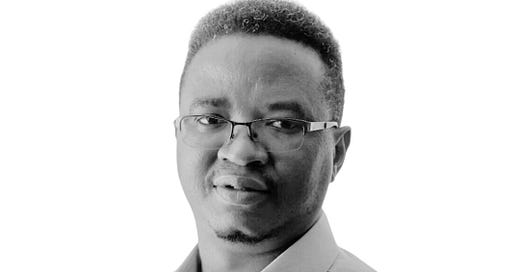Migration is a "Missionising" Experience
You Are Invited to the Acts 11 Conference (26-27 Sep 2024)
Welcome to “Global Witness, Globally Reimagined.” You get a glimpse here of the kind of work that I do both at Church Mission Society and Missio Africanus where I help students of all levels (from unaccredited courses to PhD) explore the theological (and missiological) implications of the rise of World Christianity. In the newsletter, I focus on the subject of global witness in the twenty-first-century context. Every Thursday, I share a thought that has spoken to me in the week, one or two resources that I trust will be helpful to you, and three exciting quotes about mission to give you something to think about as you go through your day. I pray one of these will energise you.
—
May I take this opportunity to tell you about our ACTS 11 Conference, which will take place on 26 and 27 September in Oxford? It will also be live-streamed, so you can participate from anywhere in the world. You can register here: www.churchmissionsociety.org/acts11.
1. Thought I Can’t Shake Off
We are only one week away from the ACTS 11 Conference that will take place at the Church Mission Society House in Oxford. The Centre has emerged to provide a sustained focus on the phenomenon of migration that, we believe, will shape a great deal of the human experience in this century. Yes, humans have been on the move since Eden, but the scale of the factors forcing people to migrate will be uniquely immense this century. As this Pew Research has shown, a majority of migrants in the world are Christians. Thus, migration, for many Christians, will be a “Christian” experience and will, therefore, have implications for their faith.
Migration is, for many, a religious experience—Abraham became God’s friend in the context of migration. Of course, mission has been called a “theologising” experience—Jacob came to know God through a dream in the context of migration. And I suggest it is a “missionising” experience—diaspora/migrant Christians like Paul and Barnabas shared the good news with other “people on the move” in Antioch and many other migrant cities of the first-century world.
The key concern of this conference (and of the Centre as a whole) is how the Body of Christ can be followers of Christ as people on the move—as sojourners, pilgrims, and exiles—together with the migrants of this world. By extension, then, we wonder how this “church on the move” can be intentional about making disciples for Christ among the “nations on the move.”
If you are engaged in missions, in one way or another, or you are leading a church in a city where migrants have become present, this conference is for you. We intend for it to be a space where practitioners and academicians will discern together the work of sharing the good news in a world on the move. It will provide spaces for people to process the implications of migration (both of Christians and peoples of other faiths) for Christian communities (and for Christian mission) in the four continents of Africa, Asia, Europe, and Latin America. They will also have focused conversations about the intersections between mission, migration, and the four key areas of gender, youth, finances, and race. So, there will be something for all of us.
It will be great to sit in the room, in-person or virtually, with others passionate about this issue.
2. Resources I am Enjoying
Podcast: CMS Audiomission, “Refugees, Migration and Mission”
This episode of the Church Mission Society’s Audiomission podcast welcomes three sets of people doing mission in various contexts around the Mediterranean. Although the conversation is about a decade old—it took place back when people were fleeing Syria in large numbers—the insights shared from the wealth of experiences of the mission practitioners among refugees and other migrant communities remain relevant. For instance, Doug Marshall, a CMS mission partner serving with his family among refugees in Malta, highlights how acknowledging the vulnerable migrants, making them feel dignified, opens them up to receive the gift of the gospel. Chris, another mission partner working among Arab Christians in North Africa, reflected on his efforts in partnering with local churches to extend their missional reach amid tension and religious persecution. Interesting meditations also came from Adel Shokralla, an Egyptian priest and mission partner in Cairo. All in all, the discussants agreed that doing mission among the various migrant communities “galvanises” their faith, as learning exchange happens between them and the people.
3. Quotes I am Pondering
… good news after death is only half of the gospel. The good news has to be holistic, addressing today’s needs as well as the future ones. — Younghoon Lee, Church Growth: Reflections on Yoido Full Gospel Church, (Oxford: Regnum, 2014), 111-12.
The call to reconciliation that God does, his will of restoring and healing, proves that he offers us a life in its fullest measure. — Sanzana, Elizabeth Salazar. ‘Silver and Gold Have I None’: Healing and Restoration in Pentecostalism, (Oxford: Regnum, 2014), 124.
... incarnation or translation is the vital vehicle of the Missio Dei in the history of man … Nevertheless incarnation or translation is not the ultimate mandate of the mission, but conversion and comprehensive transformation is. — Thang Deih Lian, "Positional Paper: Historical Foundation of Mission" (Torch Trinity Graduate University, 2016), 2, https://www.academia.edu/35294129/THE_HISTORICAL_FOUNDATION_OF_MISSION.
I pray that you will be faithful to the work God has for you this week.




